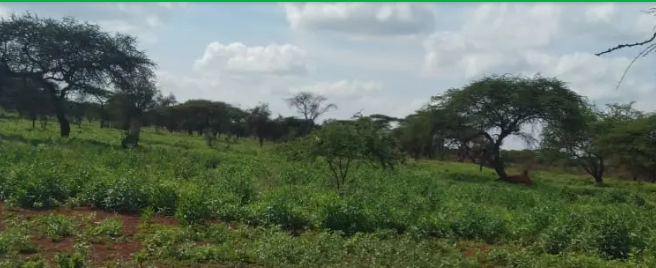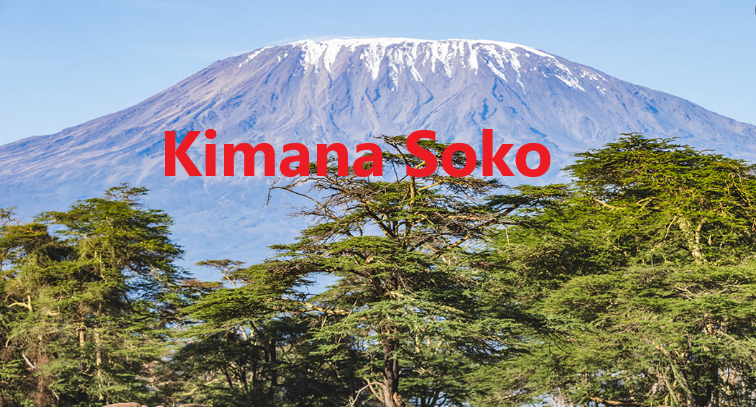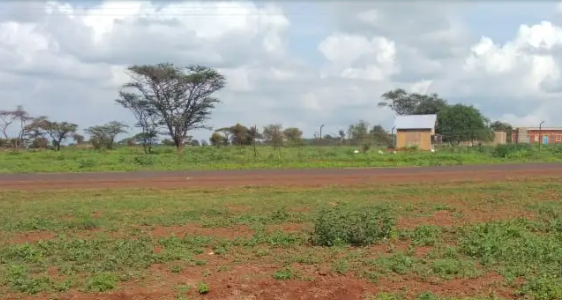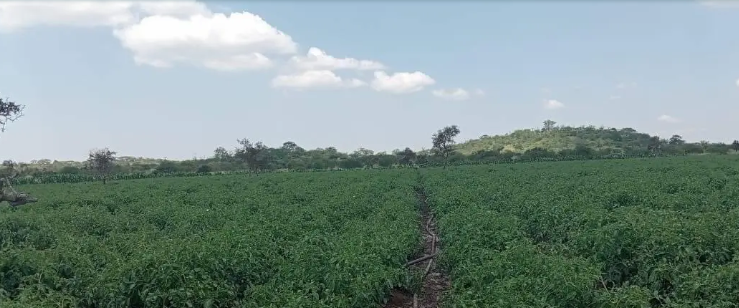How to Buy Land Legally in Kenya Without Being Conned?

Credit: Kimana Soko Online.
- Land is a valuable type of fixed asset anyone can have today.
- People are exposed to scams and cons who capitalize on appetite for land ownership.
- You must know the due and legal process you must follow to avoid losing your money.
Almost all of us dream or hope to own land somewhere for investment purposes or for settling down someday. Well, to say the truth, land is a valuable type of fixed asset anyone can have today. However, this also exposes this type of investment to scams and cons that capitalize on Kenyan’s appetite and love for land ownership. If you are one of the many people planning on purchasing a piece for yourself, then you must know the due and legal process you must follow to avoid losing your money. In this article, you will learn about the entire process of buying land in this great country of ours in two major steps.
The Legal Process of Buying Land in Kenya
Step 1.
Let’s start with the basics before embarking on the legal process you should follow. You must first conduct due diligence. This involves:
1.Identifying the type of land and your purpose for wanting to buy. What is your intention? residential, agriculture, industrial or commercial? Understanding your purpose allows you to go for good deals.
2.You should then understand the typography of the area or the land. You can do this by asking for recommendations from family members or trusted friends. You can also visit the potential site to get an idea of the area. Remember, this will be your future investment or residential area. So, take your time. Google can also help you have a rough overview of the location.
3.After getting a glimpse of the typography, the next key step is examining the available utilities based on your needs such as roads, electricity, and water and how to get them easily if they are unavailable. Having this info will help you factor in additional costs in your budget for better planning.
4.Another crucial detail is understanding things such as riparian land and other environmental issues. This helps avoid swampy areas that fill with water during rainy seasons or those prone to flooding due to being close to rivers. You want a place where once you acquire it, you won’t have to deal with additional issues such as being forced to move because of buying a piece identified as riparian, which is illegal in Kenya. The Ardhisasa platform can be very helpful at this stage. Qualified or registered surveyors can also help you identify boundaries and where you are not supposed to buy.
5.Now that you have conducted your research, do not rush to buy that piece even if it meets all the conditions and the deal is attractive. You can easily be conned. Here is the legal process for purchasing a piece of land in Kenya:
Step 2: Land Buying Process in Kenya
First, ensure you have access to a qualified lawyer with knowledge of this process because he or she understands everything including the required documents. Now that you have identified the land, know its typography and location, and are satisfied with available utilities, follow these steps:
1. Ministry of Lands Search: Start by visiting the land registry and search for the piece you are interested in. You can do this online via the Ardhisasa website but you will need to ask the seller for the title deed to conduct this search and part with Ksh. 520. Also, you must register on the platform first with your ID, colored passport-sized photos, phone number, and email address. If the property in question was legally acquired, you will get immediate results with details about the owner, land size, and any important details related to the piece such as the title being used to secure loans, or any court cases barring transactions on the piece. Remember, searches take about two hours. Valid results should not be older than six months.
2. Local Council Search: You must also visit the local council (municipal or county offices) office if the land is outside Nairobi to help you understand if the piece has pending land rates to be cleared by the owner. Charges for this vary per county. However, you can get the needed details from the Lands Ministry regarding Land Registries. After this visit, ensure you have all the clearance receipts and certificates showing the land has no pending rates. This costs about Ksh7,500 in Nairobi.
3. Get the Land Map. Armed with the search results, pay a visit to the local survey where the land is located and buy a map or maps of the location. You will normally need two maps, one for tracing and drawn to scale and the second one indicating neighbouring lands. Each one costs Ksh. 300. While you can get them from the lands ministry, local surveyors are usually faster and better.
First, ensure you have access to a qualified lawyer with knowledge of this process because he or she understands everything including the required documents. Now that you have identified the land, know its typography and location, and are satisfied with available utilities, follow these steps:
4. Field Verification: Now that you have the maps, it’s time to visit the piece in question accompanied by the surveyor and the land owner. Ensure the landmarks or beacons are visible. The surveyor will charge you Ksh. 1000 per beacon. Ensure those bordering you agree with the boundaries.
5. Land Control Board (LCB): After varying the maps and beacons, you must book a meeting with the LCB in the sub-county where the property in question is located. The board comprises an assistant county commissioner and local village elders who meet once per month. This group is the one that will give you final consent for the piece being sold. They usually aim at protecting sellers from self-destruction such as ensuring that all concerned parties are in agreement, the seller is not left without a place to live, or the land is not communal. You will part with Kshs 1000. Nevertheless, you can call a special LCB rather than wait for the regular LCB, even though you will pay Kshs 5,000. For this special sitting, all the transacting parties must be present.
6. Written Sale Agreement: By law, any land transaction must in writing. This is a legally binding document, therefore you will need a lawyer at this point and other witnesses such as the seller’s spouse to avoid future complications. There will be three copies of the agreement, one for you, another for the seller, and the third one for the lawyer. The paper usually contains details about: Seller and buyer, The land in question, The involved cost and payment details, Who incurs specific costs during the process, and Measures against contract breaches. Other charges in the agreement include a 2% or 4% stamp duty in rural or urban areas respectively. Legal fees rely on the land value. In particular, lawyers will charge a minimum of Kshs 35,000 for any land valued at Kshs. 5M and below.
7. Post Agreement transaction: The agreement will specify how you will complete the payment such as through installments or cash. It is advisable to avoid paying in cash even if you have the money. However, whichever way you both agree, ensure that all the legal documents including the title deed are in the lawyer’s custody. This is because until the payment is complete, the seller still owns the land and leaving the documents with him or she is risky. Specifically, he or she may use them in conducting transactions that can cause you problems once you acquire the piece.
8. Land transfer: The seller must sign land transfer forms after you complete all the payments. These forms will be taken to the Lands Ministry together with the sales agreement, old title deed, municipal/ county council clearance, land search, LCB consent, KRA PIN, and passport photos to change ownership. The entire process will cost you about Kshs. 5,000.
9. Post-purchase: You should conduct another land search with the Lands Ministry to confirm that the piece is under your name.
Bottom Line
You are now conversant with the legal process of purchasing a piece of land in Kenya. As the article shows, patience is a must because failure to go through the entire process may lead to losses or regrets. Hence, ensure you get value for your hard earned money by acquiring land legally. If you need assistance, seek advice from trusted people or just send an email or call using the contacts below.


